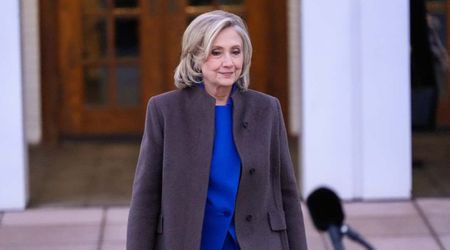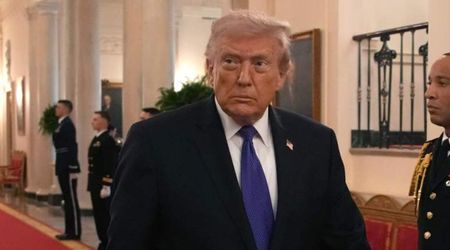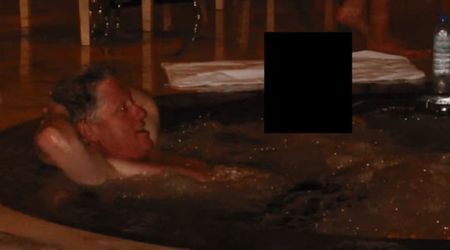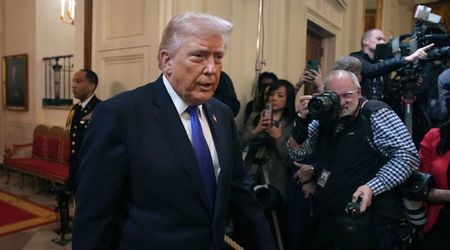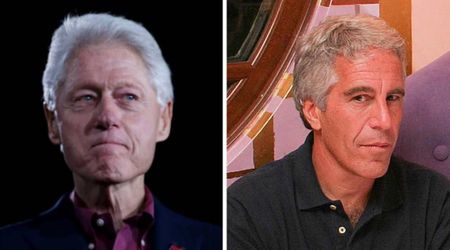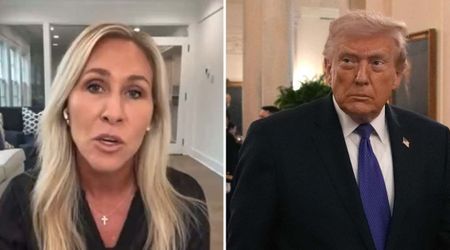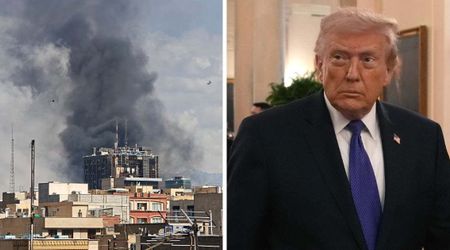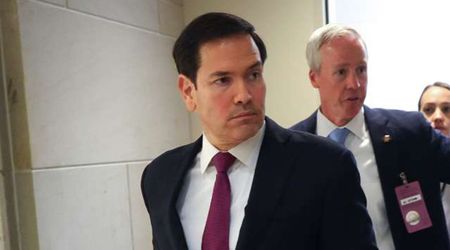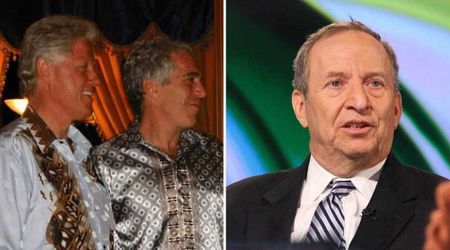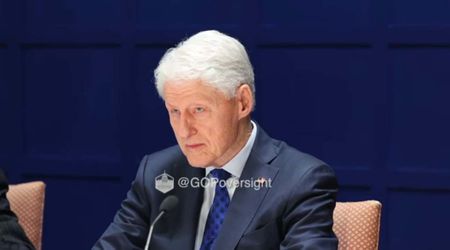7 key takeaways from Supreme Court’s arguments on Donald Trump's immunity claims
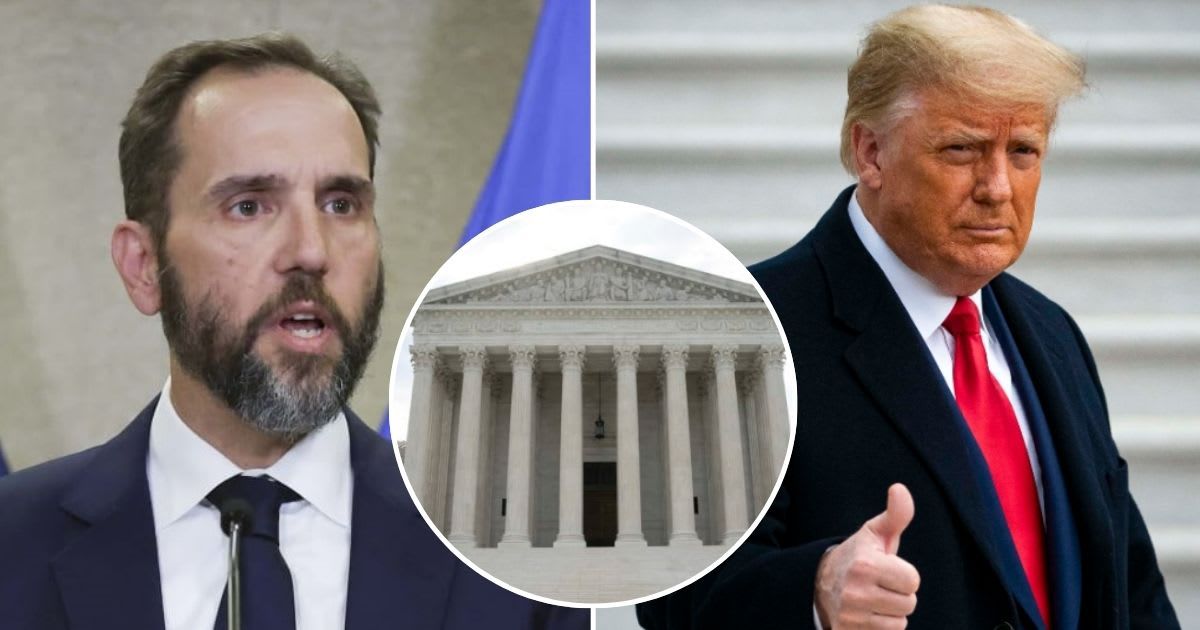
7 key points coming out of Supreme Court hearing on Trump's immunity claim

The Supreme Court's recent hearing on former President Donald Trump's claims of immunity and comprehensive protection in his attempts to dismiss his federal election subversion case has compelled the justices to reject Trump's argument but also appeared hesitant to give Special Counsel Jack Smith full permission to pursue the charges. During the three-hour-long hearing, several justices expressed their willingness to adopt an approach that could jeopardize the possibility of holding a trial before the November elections. The court's conservative judges, in particular, were seen aggressively questioning the Special Counsel's legal representative, as they backed Trump's assertion that without some form of immunity, future presidents could be subject to politically motivated prosecutions. The hearing focused on whether a distinction ought to be made between Trump's official acts, which he carried out as part of his presidential duties, and his personal conduct. The Supreme Court's final decision in this matter will determine Trump's legal fate and will likely establish the guidelines for criminal exposure applicable to future presidents. Here are the key takeaways from the US Supreme Court hearing on former President Trump’s absolute immunity claims:
1. Unlikely that the SCOTUS will address the immunity issue

The Supreme Court justices discussed the intricacies of the case, which made it increasingly improbable for the court to provide a straightforward answer on whether former President Donald Trump could be prosecuted for his attempts to overturn the 2020 election. Consequently, it seems likely that much of the work will be delegated to lower courts, which could lead to further delays in a trial that was previously scheduled for March 4, this year. This supposed outcome would play right into the 77-year-old MAGA strongman's tactic of prolonging the court process and pose a risk for a trial before the November general election. During the hearing, Chief Justice John Roberts scrutinized the US Court of Appeals for the DC Circuit's unanimous ruling against Trump, claiming that the appeals court failed to provide sufficient justification as to why almost all of Trump's actions were subject to prosecution. “As I read it, it says simply a former president can be prosecuted because he’s being prosecuted,” Roberts said derisively. “Why shouldn’t we either send it back to the court of appeals or issue an opinion making clear that that’s not the law?”
2. Donald Trump's attorney admits that certain actions may be deemed 'private', not official

During the Supreme Court hearing, Trump's lawyer, John Sauer, made some significant concessions regarding the criminal charges brought against the former President of the United States. Although Trump had previously argued that the entire prosecution should be thrown out, Sauer admitted that some of the alleged conduct supporting the charges was private. Justice Amy Coney Barrett was the first to question Sauer about the distinction between official and personal acts alleged in the charges. Sauer agreed with how the Special Counsel had labeled particular acts as private, including those that alleged Trump conspired with his private attorneys and campaign advisers to spread baseless and unfounded election fraud claims, file false court filings, and proffer fraudulent sets of electors. However, in a later exchange with Justice Elena Kagan, Sauer claimed that Trump was acting in an official capacity during a call with the Republican National Committee about assembling slates of so-called "fake electors" and his call for Arizona lawmakers to hold a hearing on election fraud. However, Sauer also stated that Trump's telephone conversation with Georgia Secretary of State Brad Raffensperger, in which he asked Raffensperger to "find" enough votes to overturn the results, was not an official act. Sauer's willingness to admit that some allegations in the indictment weren't protected by immunity was a significant departure from the former president's position up to that point. However, Sauer's move may encourage the justices to order more proceedings on deciding what's private and what's public in the indictment, which could seriously delay the case's road to trial.
3. Justice Amy Coney Barrett raises the issue of ruling scope and timing

Some of the conservative members of the Supreme Court, including Justice Amy Coney Barrett, appeared concerned about the extent or scope of Trump's claim that he has “absolute” immunity. During the hearing, Trump's lawyer, Sauer, was faced with a series of intimidating questions regarding this position that his client had asserted. It remains unclear how the Supreme Court will send the case back to the lower courts for further review, but this will likely be critical. At one point during the hearing, Justice Barrett suggested that the case could proceed to trial quickly if Smith focused only on Trump's private actions rather than his official ones. "The special counsel has expressed some concern for speed," Barrett continued. She questioned DOJ attorney Michael Dreeben if the trial court could determine whether the president's actions were official or private, or if there was "another option for the special counsel just to proceed on the private conduct?" It is possible that prosecutors could create a new indictment that removes any actions that could be considered official, which would make the case less complicated. Dreeben clarified that the charges against Trump mainly involve his private conduct, meaning that even if the Supreme Court determines that Trump has immunity for any official actions, a trial could still proceed.
4. Liberal justices were not convinced by Donald Trump's assertions of absolute immunity

The stance of the three liberal justices on the court's verdict is quite evident. Justices Sonia Sotomayor, Elena Kagan, and Ketanji Brown Jackson were actively involved in the argument session, grilling the attorneys on the potential implications of Trump's absolute immunity claim. The liberal judges posed several hypothetical scenarios to Trump's attorney, with one of them being whether a president's order to stage a coup could be prosecuted under Trump's theory. Sauer replied that a president would have to be impeached and convicted first before being charged criminally. However, Kagan contended that if the order came in the final days of a presidency, and there was no time to impeach or convict, what would happen then? Justice Elena Kagan asked, “You’re saying that’s an official act? That’s immune?” Sauer had to admit that, according to Trump's reasoning, "it could well be." Justice Kagan fired back, “That sure sounds bad, doesn’t it?” Justice Jackson expressed her concerns that former President Donald Trump's position would elevate the president above the rule of law, reiterating a more fundamental point made by the Special Counsel earlier in the case. “If there’s no threat of criminal prosecution, what prevents the president from just doing whatever he wants?” Jackson asked, adding. “I’m trying to understand what the disincentive is from turning the Oval Office into the seat of criminal activity in this country.”
5. Conservatives are concerned about subjecting ex-presidents to bogus criminal procedures

Conservative justices were concerned that a former POTUS might face criminal charges for actions that could be covered by immunity or some form of presidential protection. Justice Samuel Alito even suggested that denying ex-Commander-in-Chiefs immunity could discourage peaceful transfers of power as outgoing presidents who lost hotly contested elections would not want to leave peacefully if they feared being prosecuted by their political rivals. Meanwhile, several Republican appointees on the court challenged the Special Counsel's claim that there were enough safeguards in the criminal justice system to prevent abusive prosecutions. Justice John Roberts said at one point during the hearing, “You know how easy it is in many cases for a prosecutor to get a grand jury to bring an indictment and reliance on the good faith of the prosecutor may not be enough in some cases.” Justice Samuel Alito, a former federal prosecutor himself, referred to a well-known saying that a grand jury would indict even a ham sandwich if a prosecutor asked them to. He then presented instances from history where Justice Department officials acted criminally in their roles. Alito also highlighted Dreeben's admission that the interpretation of some criminal statutes might need to be different when applied to former presidents. He suggested that forcing a former president to go through a trial to settle those questions would be an unfair burden. “That may involve great expense, and it may take up a lot of time,” Justice Alito argued, “And during the trial, the former president may be unable to engage in other activities that the former president would want to engage in.”
6. Donald Trump’s lawyer claims ex-prez ‘absolutely’ had the right to put forward false electors

Trump’s lead attorney John Sauer asserted that his client “absolutely” had the right to recommend Republican electors in the states where he lost in the 2020 election, which many people refer to as "fake electors." When questioned by Justice Sonia Sotomayor, who asked whether a President could help create a "fraudulent slate" of electors, which would be an official government act that might be covered by immunity, Sauer replied that there was historical precedent for presidents to get involved in such matters. He cited the contested presidential election of 1876, where there were well-founded claims of fraud and multiple slates of electors in several key states. Sauer referred to the electors as "so-called fraudulent electors." These statements were a notable endorsement of a plot that many believe is a corrupt scheme to overturn the will of the voters. However, it is evident that federal and state prosecutors strongly disagree with Sauer's arguments. They consider the Trump campaign's seven-state plan to be a criminal scheme. The Justice Department has charged Trump with federal crimes in connection with the "fake electors" scheme, but he pleaded not guilty. Smith's indictment states that Trump "organized fraudulent slates of electors" to "obstruct the certification of the presidential election." Furthermore, prosecutors in Michigan, Georgia, Nevada, and Arizona have charged numerous illegitimate GOP electors and some Trump campaign officials who were involved in the plot. Prosecutors in Arizona announced their far-reaching indictment, which targeted the electors themselves and members of Trump's inner circle, including Mark Meadows and Rudy Giuliani. On Wednesday, Michigan investigators also revealed that Trump is an unindicted co-conspirator in their case.
7. Focus now on timely resolution of the case

The controversy surrounding former President Donald Trump's immunity claim has reached its conclusion, and now the Supreme Court is under immense pressure from the left to issue a decision. The court's delay in this matter plays into Trump's delay strategy, risking the likelihood of bringing the case to trial before the November election. Past experience shows that the Supreme Court has moved quickly in similar high-profile cases. In 1974, for instance, the court ordered President Richard Nixon to turn over tapes of surreptitious recordings made in the White House within roughly two weeks after arguments. In another notable example, the court decided the Bush v Gore election dispute in 2000, a day after hearing arguments. Earlier this year, the court heard arguments about whether Trump had disqualified himself from Colorado's presidential ballot under the 14th Amendment “insurrectionist ban.” The SCOTUS's decision came within a month, concluding that Trump did not incite an insurrection in the country. The Supreme Court's decision to deny the Special Counsel request last December to skip the appeals court and resolve the matter promptly already aided the 2024 presumptive GOP nominee. The court's decision ensured that the original March 4 date for Trump's Washington, DC, trial would never come to pass. Detractors have noted that the court has been particularly slow in releasing far more mundane rulings this year and that it took more than two weeks for the court to agree to hear the Trump dispute in the first place. Although remarkably speedy by Supreme Court standards, the court's critics find this pace slower than they would have anticipated.

